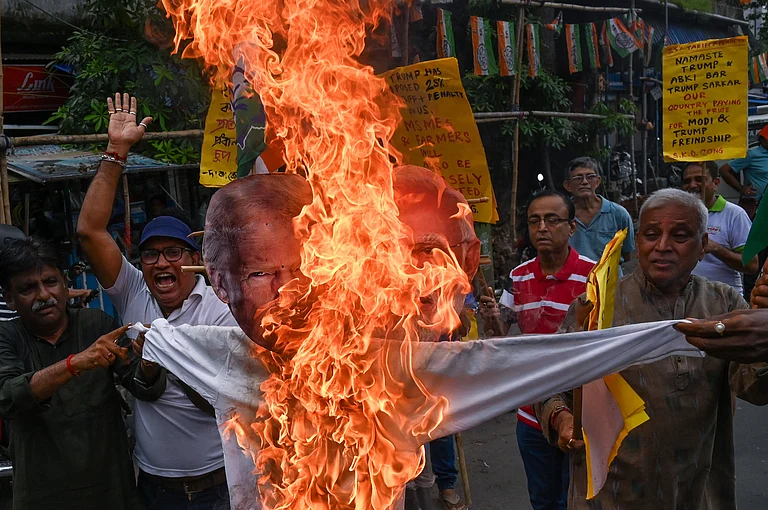Angami Zapu Phizo is my father. He started fighting for the rights of the Naga people at a very young age. Today I am the president of Naga National Council, the organisation that he and his associates led from the front for the cause of the Nagas. It is not a legacy. It is that I have been carrying his vision and aspirations of the Naga people with or without my father.
When I was very young, my father was in Burma. Then I had very little connection with him. I used to wonder why he is not with our family. As I grew up, I understood what he was for the Naga people and what he had been fighting for. It naturally came out to me that I needed to help him in his quest for a separate identity, a separate Naga nation.
My father was sent out to go and tell the world out there about the struggles of the Nagas. After the plebiscite was conducted in 1951, the report of the result was given to Nehru. But Nehru, instead of accepting the verdict of the plebiscite, got angry. After that he started a policy of suppression and oppression of the Naga population and tried to arrest the NNC leaders.
After the result, an act of military aggression was launched upon the Nagas during the 1950s. When Indian Army tried to capture my father, we went into hiding in deep jungles in Nagaland. The villagers used to provide us food. When the leaders come and visit us, I used to host them in these caves with tea and snacks. I needed to be around my father to help him with his movement.
But someone had to get out to the world to speak for the Nagas that India followed a policy of extermination. My father was sent to foreign countries to garner support for the Nagas and to represent the rights of the Nagas to the international arena. If that was not done, the Nagas would have been silently exterminated by the Indian armed forces.
Phizo first went to East Pakistan (now Bangladesh) from Nagaland and then Pakistan arranged his passport for his foreign tours. He started living in London since the 1960s.
Joining my father
After almost a decade, I had to join my father. The way he was sent out to the world, I was sent out to him but under a different situation.
The Assamese leaders during the Chinese aggression, especially Bimala Prasad Chaliha — the then-Assam Chief Minister, felt being left behind by India. They felt hurt. To them India had lost them to the Chinese. Therefore, Chaliha particularly felt that somebody should be sent to London to tell Phizo about the situation of Assam. They felt Phizo should know about the situation and find a way out. Chaliha told me, "Your father is already a leader in a foreign country, let him come and lead this part as well." That’s when I was asked by Chaliha to set out for London and meet my father. Since then, I was with my father till his death in 1990.
To assure India that remaining independent was not a decision of few Nagas, the plebiscite in 1951 was held. To authenticate the plebiscite, India also sent their representatives. But Nehru did not accept the resolve of 99.9 per cent people wanting a sovereign nation. Ignoring the Naga sovereign will, expressed through the plebiscite, they sent ballot boxes to Naga Hills in their first general election in 1952. The ballot boxes were taken back empty because Naga people maintained the ‘Naga national stand’ for a proper non-participation in India’s first general elections after Independence. India should neither have brought the ballots nor the Army.
In London, I was my father’s secretary and I used to take care of the house and also his official work.
On peace talks
The Naga National Council is not a mere political party. The whole of the Nagas are NNC whether they are in Nagaland or outside Nagaland.
On the peace talks and those Accords and Agreed Positions, the NNC’s stand is very clear. It is that we have not demanded anything from India. The other political groups are making demands which do not have the Naga National Stand.
Why would the Nagas who were never a part of India demand Independence from India? That is where the problem lays. The international community today is not very vocal about the Naga sovereignty issue because today the relationships between countries are shaped by trade. In that sense, India is a large country. But when we personally talk, they are supportive of us. India and Nagaland have no connection. India was under foreign occupation for many years, but the history of the Nagas is different. Nagas have never surrendered to any nation, so after the British left, India should not have come and occupied Nagaland.
(Adinno Phizo, 90, is the current President of Naga National Council (NNC), one of the first political organisations of the Nagas formed in 1940s.)





















